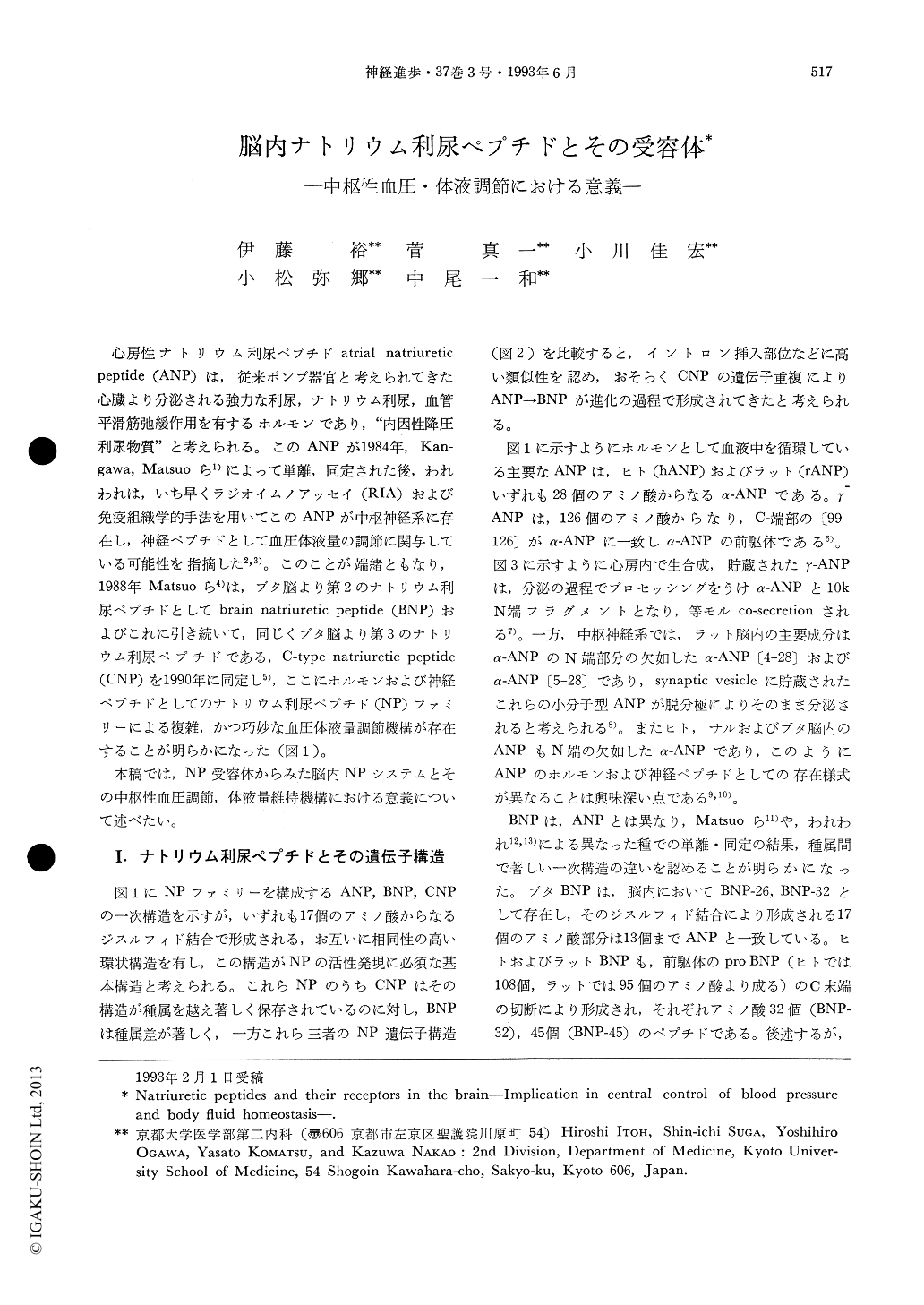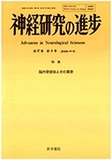Japanese
English
- 有料閲覧
- Abstract 文献概要
- 1ページ目 Look Inside
心房性ナトリウム利尿ペプチドatrial natriureticpeptide(ANP)は,従来ポンプ器官と考えられてきた心臓より分泌される強力な利尿,ナトリウム利尿,血管平滑筋弛緩作用を有するホルモンであり,“内因性降圧利尿物質”と考えられる。このANPが1984年,Kangawa,Matsuoら1)によって単離・同定された後,われわれは,いち早くラジオイムノアッセイ(RIA)および免疫組織学的手法を用いてこのANPが中枢神経系に存在し,神経ペプチドとして血圧体液量の調節に関与している可能性を指摘した2,3)。このことが端緒ともなり,1988年Matsuoら4)は,ブタ脳より第2のナトリウム利尿ペプチドとしてbrain natriuretic peptide(BNP)およびこれに引き続いて,同じくブタ脳より第3のナトリウム利尿ペプチドである,C-type natriuretic peptide(CNP)を1990年に同定し5),ここにホルモンおよび神経ペプチドとしてのナトリウム利尿ペプチド(NP)ファミリーによる複雑,かつ巧妙な血圧体液量調節機構が存在することが明らかになった(図1)。
本稿では,NP受容体からみた脳内NPシステムとその中枢性血圧調節,体液量維持機構における意義について述べたい。
Atrial natriuretic peptide (ANP) is a peptide hormone first isolated from the cardiac atrium and possesses potent diuretic, natriuretic and vasorelaxant activities. The discovery of ANP cast light upon the heart as an endocrine organ involved in the control of blood pressure and body fluid. Soon after the discovery of this peptide in the heart, the investigation using radioimmunoassay (RIA) and immunohistochemistry revealed the existence of ANP in the central nervous system (CNS) and suggested the implication of this peptide in the central regulation of cardiovascular homeostasis as a neurotransmitter or neuromodulator. Following the identification of ANP in CNS, new members of natriuretic peptides were isolated from the brain. Brain natriuretic peptide (BNP), which was originally isolated from the porcine brain, is now known to be produced predominantly in the cardiac ventricle and act as a hormone. The other homologue of ANP, C-type natriuretic peptide (CNP), was first isolated from the porcine brain, is now known to act as a neuropeptide or a local modulator, since CNP exists relatively in high concentrations in the brain, whereas it is so far undetectable in the heart.

Copyright © 1993, Igaku-Shoin Ltd. All rights reserved.


